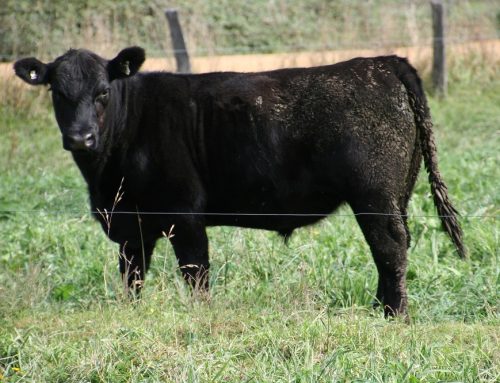On Friday 22 June 2018, AFSA attended the NSW Fresh Food Pricing Parliamentary Inquiry Hearing at Parliament House in Sydney. AFSA was selected and recognised as a key stakeholder in the food system by the parliamentary members in this Upper House inquiry. Tammi Jonas, president of AFSA, and our paralegal Sarah de Wit were welcomed to present evidence because of the strength of our submission to the Inquiry lodged in May this year. AFSA was one of nine stakeholders invited to attend sessions and questioning at the Hearing, chaired by Reverend the Hon Fred Nile, MLC and members from the Liberal Party, the Greens and the Australian Labour Party.
The below are the highlights, lowlights and summary of AFSA’s experience at the FFPI Hearing. Read our full submission HERE.
Highlights
Chair Revd Nile asked about Fair Food Farmers United, a branch of AFSA set up in 2014 to provide a balanced voice to protect small-scale agro-ecological farmers. The Chair was interested to know whether our members are being ripped off by supermarkets. Our response that most AFSA members effectively circumvent the duopoly by engaging in direct sales models interested LC Member Courtney Houssos of the ALP. Ms Houssos and Mick Veitch of the ALP (substituting for Adam Searle) expressed keen interest in and asked many questions about the operation of Jonai Farms and how the Community Supported Agriculture (CSA) model operates.
Due to this interest, our evidence gave members an introduction to the democratic participation and farmer-led decision-making about costs involved in CSA models. Ms Houssos told us that the case studies we gave would provide “movement and colour” to their final report.
Tammi gave evidence based on the meetings of the Food and Agricultural Organisation (FAO) of the United Nations in Fiji at the Asia-Pacific regional conference. As a result, the Parliamentary members are now aware of the effect of exports on fresh food access in Fiji, where 50% of food comes from countries like Australia, leading to a preponderance of highly processed foods with low nutritional value that are a leading cause of Fiji and other Pacific islands’ high obesity rates.
The ALP questioned AFSA about our proposed solutions to protect NSW’s peri-urban farming and expressed interest in our submission’s reference to foodsheds. We gave the members information about successful case studies in Victoria, NSW and in Colorado, where Boulder’s local government have an ‘open spaces’ tax that funds the purchase of peri-urban land as it comes up for sale to be maintained for agriculture.
Taylor Martin of the Liberal Party commended us for a “particularly good submission” and asked us about examples of where the Right to Food is being implemented and whether we’ve seen downsides. Emphasising first and foremost that we’ve never heard of any downsides of ensuring the Right to Food, we cited the example of Belo Horizonte in Brazil, where a zero-hunger program was enacted in the 1980s as referred to in our submission. We referred to Beginning to End Hunger by M. Jahi Chappell, a newly released book that details the case study of Belo Horizonte and the way it achieved the Right to Food.
Tammi gave the Liberal Party members an insight into the “culturally appropriate” element of food sovereignty when asked to explain it. Scott Farlow was interested in the membership and networks of AFSA and whether AFSA would support AmazonFresh. In reply, we asserted the importance of direct sales models and the need to shorten supply chains in order to overcome the “grow more for less” model. We agreed with the Liberal party member that there has been a loss of skills and literacy, but also taste for preparing fresh food. Justin Field, representing the Greens, took the opportunity to encourage the other members to try a homegrown carrot. He then queried AFSA whether CSAs could “feed Australia”. To this Tammi responded that already 70% of the world’s food is produced by small-scale growers and fed into direct systems.
AFSA was scheduled in a session after The NSW Council of Social Service (NCOSS), preceded by the NSW Farmers’ Association, the Cancer Council and the Public Health Association. This meant that questions asked by the Members related to their submissions. This also gave AFSA the opportunity to call out the Farmers’ Association’s phrase “paddock to port” as a rather cynical phrase to describe export-oriented supply chains that will not feed local communities.
The Greens member then asked us to speak to some of the barriers around access to land. We mentioned the issue of the average age of farmers but also of the many young people wanting to farm in systems AFSA promotes. We alerted them to the work of Cultivate Farms, which is working to connect would-be farmers with the land and finances they need to grow ethical and ecologically-sound food.
Key message
We drove home the message that pricing is not the key trigger to a better food system. Food system problems like hunger must be solved at the point of production and worked through along the supply chain.
As Tammi stated, “We do not start with hunger as the problem, we start with how we are producing and making food available to people or not available to people. We know that globally we produce far more food than we need and yet we still have millions and millions of people who are hungry. So it is not an availability problem, it is accessibility and it is problems of distribution and governance of food.”
Lowlights
No questions from the National Party. National Party member Richard Colless (substituted for the Hon Ben Franklin) was absent for the Hearing session.
Summary
At the Inquiry Hearing we were asked to respond to the NSW Farmers Association’s proposal for “a state-based commissioner or advocate for the farming sector to address issues” relating to fresh food pricing. The Association made this proposal in their submission. We didn’t have a position on the proposal but took it on notice to consult with the AFSA Committee.
NSW Farmers Assoc. believe that a Commissioner could address unequal bargaining power within food supply chains, market competition and abuse of market power. They suggested a NSW Ag Commissioner could focus on:
- code compliance on unfair payment terms;
- advocacy on behalf of the farming sector on competition and abuse of power matters; and
- analysis and monitoring of farm-gate and retail prices on a basket of goods to assess the competiveness within supply chains.
After the Hearing, the AFSA Committee discussed its views on the pros and cons of this proposal. We considered what an Agriculture Commissioner’s role might be and came to the conclusion that we do not support the proposal. Such an initiative would simply be incapable of examining all externalised costs associated with food production accruing to all levels, including the consumer level. The question of who would fund the Commissioner and what powers they would be allocated remains unanswered. Whether such an individual would be capable of genuinely representing the diverse interests of the sector and its many interrelated networks of suppliers and distributors also remains to be explained.
While AFSA notes that having an independent Red Tape Commissioner in Victoria has assisted in efforts to reduce regulatory burden in the state, we believe it would be impossible to create a role that genuinely is responsive to all scales of farming, as well as wholesalers, retailers and consumers effectively and independently. We are of the view that the NSW Farmers’ Association’s submission made starkly clear their emphasis on scaling up “paddock to port” infrastructure and increasing expenditure on export channels for monocrops. In making such intentions explicit, their submission blatantly missed the intent of the Inquiry by undermining fresh food access to NSW residents. We see their suggestion of establishing a food hub neighbouring the airport a hollow attempt at supporting domestic food exchange, as the area is inaccessible and impedes the Right to Food. In that regard, we believe the proposal will not serve NSW residents better access to fresh food, and nor will it better support democratic participation in the food system.
Other questions (NOT a question on notice)
Should governments be more involved in Food Pricing
In general, AFSA does not believe government has a strong role to play in food pricing. However, where there are low-income communities in need of support to access nutritious, fresh, local food, government can play a role by paying local producers full price for their produce and then subsidising the sale of this food to low-income households, whether directly through models such as community-supported agriculture (CSA), or through local greengrocers or independent grocery stores, and/or through cooked meals at dedicated venues (similar to Belo Horizonte’s ‘popular restaurants’, where lunch is $1 no matter who is buying it).
Final remarks
Overall, the Hearing was a success for AFSA. Not only did we manage to get the word “delicious” into the NSW Parliament Hansard, we considered it an opportunity to advocate for CSAs, for NSW small-scale agro-ecological farmers who want to engage in direct sales models and for eaters in NSW losing access to fresh, local produce due to the lack of protection for peri-urban farmland and foodsheds.
Read AFSA’s submission to the NSW FFPI HERE.




